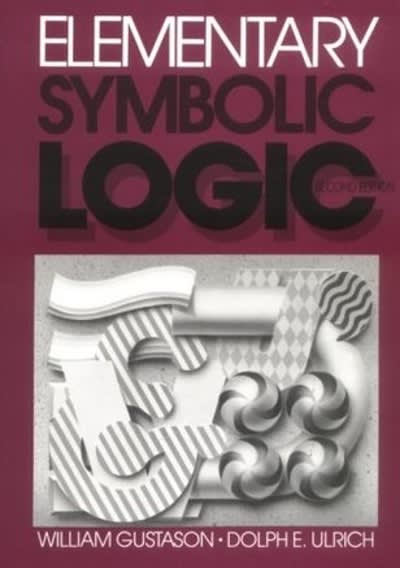Question
I need help determining whether one mean is higher, showing how the determination was made: The efficacy of two kinds of cognitive-behavioral therapy (CBT) in
I need help determining whether one mean is higher, showing how the determination was made:
The efficacy of two kinds of cognitive-behavioral therapy (CBT) in relation to a clinical population were compared. The therapies differed on the dimension of how wedded they were to the rational-emotive behavioral therapy (REBT), a subtype of CBT that emphasizes a directive, confrontational approach to encourage a patient to recognize the irrationality of specific thought patterns. Forty adolescents at an inpatient clinic for treatment of self-destructive behaviors were randomly divided into two groups of equal size, one of which received the less challenging type of CBT (Treatment A) and one of which received the more challenging kind of CBT (Treatment B). All patients were treated by trained therapists in one-on-one sessions for 1.5 hours per day (broken down into 45-minute sessions) for six weeks. All participants were apprised that they were part of a study, all participants signed consent forms, and all were told they would be informed of the results at its conclusion; participants exhibiting any behaviors that required critical intervention were promptly treated outside the plan of the study. Outcome data on the Revised Behavior Problem Checklist (RBPC)-PAR Edition* collected at the conclusion of six weeks as shown below (also found in the Data Set Scenario 3 Excel file). Treatment A Treatment B 74 80 50 82 70 49 60 44 30 60 37 65 34 77 40 45 39 51 70 70 19 53 43 16 25 38 15 44 20 29 55 51 48 54 42 46 60 18 27 61
Step by Step Solution
There are 3 Steps involved in it
Step: 1

Get Instant Access to Expert-Tailored Solutions
See step-by-step solutions with expert insights and AI powered tools for academic success
Step: 2

Step: 3

Ace Your Homework with AI
Get the answers you need in no time with our AI-driven, step-by-step assistance
Get Started


